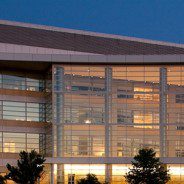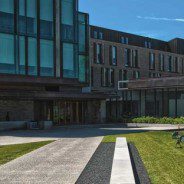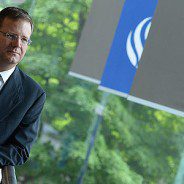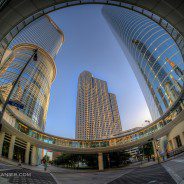Search results for :
Top 10 Posts of 2015
Happy New Year! While today is a day of looking ahead at what 2016 will bring (new beginnings, Round 2 applications and possibly attending business school), we also allow ourselves to get a bit nostalgic. With that in mind, we took a look at the 10 most popular posts from 2015.
How to Survive the MBA Waitlist
So you worked hard. You took the GMAT and got a good score. You filled out an impeccable application with the best references you could find and the best essay you could write. And you had an interview that you thought went very well. Unfortunately, in spite of all your hard work, you received the dreaded email or phone call informing you that you’ve been waitlisted. Now what? Continue reading…
How to Write a Great Resume for your MBA Application
To gain admission to competitive MBA programs, you need to stand out by demonstrating in your application what makes you a highly qualified and remarkable individual. The entire admissions process presents a chance to impress, but your resume for your MBA application plays a significant part. Continue reading…
Penn State Smeal MBAs Win Big in Sustainability Competition
A team of six Penn State University Smeal College of Business students recently received an award in the school’s MBA Sustainability Case Competition, which took place on the University Park campus.
Smeal has a seven-year history of integrating sustainability concepts into its MBA curriculum. The case competition is one aspect of these teaching initiatives.
Tips for Getting Your MBA without a Business Background
Heaven forbid! Are you an MBA applicant with a complete lack of business knowledge and a background in liberal arts, sciences or technology? While it may feel like you are starting the application process on a different planet from everyone else, have no fear. You are not alone. Continue reading…
Evening MBA
University of Washington Evening MBA Program Structure
The University of Washington Evening MBA at Foster School of Business takes three years to complete. Students take courses on a part-time basis in the evenings. Core courses take place on Mondays and Wednesdays from 6 to 9:30 p.m. Electives are offered once a week from Mondays through Thursdays from 6 to 9:30 p.m. as well. The majority of students complete core courses within the first six quarters of the course of the program, with electives during the spring of the second year.
Curriculum
University of Washington Evening MBA students take 13 core courses and choose from over 75 offerings of electives, ranging from studies in Information Systems to Marketing. In the first half of the program, students take the same core courses in order, and then break into their preferred areas of study with the electives. Overall, Evening MBA students take 47 required core credits, in addition to 32 elective credits, for a program total of 79 credits.
Students may also take part in specialty programs offered by the Consulting & Business Development Center, the Global Business Center, the Arthur W. Buerk Center for Entrepreneurship, and the Center for Leadership and Strategic Thinking.
Part-Time MBA Rankings
• U.S. News & World Report: 12 (tie)
Class Profile
The University of Washington Evening MBA Class of 2022 has a class size of 111. Students are, on average, 29-years old on average and typically have six years of work experience. About 42 percent of the Evening MBA are female, with 58 percent male students.
The average GMAT score among the class is 641, while the average undergraduate GPA was 3.41.
Career Statistics
The Foster School of Business Career Services has a 98 percent success rate at placing its graduates in jobs within three months of graduation. Furthermore, the school offers a mentor program to help students learn about real-world business practices, and the school’s connections from its 9,300 MBA alumni may also help with job placement.
Evening MBA students have the same access to all of the career services offered to full-time MBA students. The MBA Career Management offers students career coaching, online resources, advisory boards, networking events, a mentor program, and peer advisors for students in their second year. In addition, students can participate in mock interviews, resume reviews, and career advising.
Tuition, Scholarships, and Financial Aid
Total tuition and fees for the University of Washington Evening MBA is $88,130.
Evening MBA students may receive financial aid from Federal loans (up to $20,500) based on FAFSA. In addition, private loans may also help students, and interested applicants may review the private lender comparison resource to find a source. Lastly, former or current members of the military may apply for the Tillman Military Scholars Program, as well as Military MBA Scholarships and a GMAT fee reimbursement.
Admissions
Applicants are required to hold a U.S. bachelor’s degree (or its equivalent). GMAT or GRE scores are required for all applicants. In addition, students must prove quantitative analysis proficiency via college transcripts in quantitative courses, GMAT score, or current employment responsibilities. If necessary, students should submit evidence of English language proficiency via TOEFL, IELTS, or Pearson Test of English (Academic) scores.
The completed application includes an online application, two required essays, a résumé, two letters of recommendation, all prior transcripts, an official GMAT score report, and an $85 application fee.
Once a student’s application is received, the candidate may be invited to participate in Evaluation Day, which is designed to evaluate a potential student’s communication, decision-making, team, and leadership skills.
Application deadlines are as follows:
| Application Deadline | Evaluation Day | Receive Notification | Enrollment Deadline |
|---|---|---|---|
| February 23 | Saturday, April 2, 2022 | April 22 | May 25 |
| April 12 | Saturday, May 21, 2022 | June 10 | July 12 |
Full-Time MBA
University of Washington Full-Time MBA Program Structure
Over the course of 21 months, the University of Washington full-time MBA students at the Foster School of Business take both core and elective coursework to complete their degree. This includes 46 credit hours of core courses, 44 credit hours of electives, one leadership development course, a summer internship, and an MBA Core Case Competition. Students must also take two international perspective activities and two practical experience activities, both of which may or may not be directly involved with current businesses.
Curriculum
In the first year, the University of Washington full-time MBA students focus on fundamental core courses such as Financial Reporting and Analysis, Marketing Strategy, and Statistics for Business Decisions. These courses take place over the first fall, spring, and summer quarters. Second-year students take two core classes and a variety of electives. Eleven elective courses are required for the completion of the program, and They may cover topics in Business Economics, Entrepreneurship, and Operations Management.
In addition, students may participate in experiential learning by joining a community board of directors, taking part in an international consulting project, or completing a fellowship. Students may also join MBA Core Case Competitions or a Business Plan Competition to test their skills against other top competitors. Lastly, students may take on a full-time, paid internship during the summer between the first and second years of classes.
University of Washington Full-Time MBA Rankings
• U.S. News & World Report: 20
• Bloomberg: 16
• Forbes: 23
• Financial Times: 47
• The Economist: 36
Class Profile
The University of Washington Foster School of Business full-time MBA class features 110 students. On average, students are 29-years old and have over six years of work experience. About 37 percent of the class is made up of female students, and 24 percent are of international origin. The average GMAT for this class is 692, and the average undergraduate GPA is 3.37.
Career Statistics
An estimated 94 percent of MBA grads earned employment within three months of graduation. The estimated average starting salary of recent grads is $125,474 1, with 78 percent of grads earning an average signing bonus of $36,380.
Tuition, Scholarships, and Financial Aid for the Washington Full-Time MBA
University of Washington full-time MBA costs–including both tuition and fees–are $73,452 for Washington residents and $107,136 for non-residents.
Full-time MBA students may qualify for up to $20,500 via the Stafford/Ford loan program. Eligible students must have U.S. citizenship, no prior defaults on federal student loans, and (if appropriate) draft registration.
Furthermore, students may receive private loans, and the Foster School of Business can help interested students compare private lenders.
Over one-third of MBA students receive scholarships, and both merit-based and need-based scholarships are available. First-year merit-based scholarships are based on a student’s application (including GMAT score, GPA, and interview), whereas second-year merit-based scholarships are based on a student’s current GPA and involvement in the Foster School of Business community. In addition, need-based scholarships are determined by FAFSA, and students should complete an online application to demonstrate financial need.
Additional scholarships are available for women and minorities, international students, and U.S. veterans. Veterans may apply for the Tillman Military Scholars program, Military MBA Scholarships, and a GMAT fee reimbursement.
While first-year full-time MBA students are discouraged from holding outside work, some second-year students may hold on-campus positions in MBA admissions or as teaching assistants.
Admissions
Foster at Washington full-time MBA applicants are required to hold a U.S. bachelor’s degree (or its equivalent). GMAT scores are required for all applicants. If students have taken the GMAT multiple times, the Foster adcom will accept the highest score; however, GMAT scores are only valid for five years and the test must be taken by the admissions deadline. In addition, students must prove quantitative analysis proficiency via college transcripts in quantitative courses, and/or current employment responsibilities. If necessary, students should submit evidence of English language proficiency via TOEFL, IELTS, or Pearson Test of English (Academic) scores.
The completed application includes an online application, two required essays (plus one optional essay), a résumé, two letters of recommendation, all prior transcripts, an official GMAT score report, and an $85 application fee. Work experience is preferred, but not necessary to apply for the full-time MBA.
Once a student’s application is received, the candidate may be invited to complete an admissions interview via video or in-person.
2021-2022 Washington Foster Full-Time MBA Deadlines
| Round | Application Deadline | Receive Notification | Enrollment Deadline |
|---|---|---|---|
| 1 | October 5, 2021 (11:59pm PDT) | December 17, 2021 | February 24, 2022 |
| 2 | January 4, 2022** (11:59pm PDT) | March 31, 2022 | April 28, 2022 |
| 3 | March 15, 2022 (11:59pm PDT) | May 20, 2022 | June 8, 2022 |
University of Washington Full-Time MBA FAQs
How has the university coped with the current pandemic?
Currently, all instruction is online to keep students and staff safe.
What graduate programs are offered at Foster?
Part-time, full-time, executive, global executive, and technology management MBA options are available as well as a Master of Professional Accounting. MS options in business analytics, entrepreneurship, information systems, and taxation are available. Students may also achieve a Master of Supply Chain Management.
What are some employers of recent program grads?
An estimated 33% of the most recent class went into the marketing industry and 32% into the consulting field. Employers for those students respectively included Nike and Starbucks as well as Deloitte and 2A.
Get an MBA Admissions Edge with the LiveWire Data Dashboard
Curious about your chances of gaining admission to top business schools? Now you can see how hundreds of previous applicants fared at Foster in just a few clicks. The LiveWire Data Dashboard’s interactive data visualization tools allow you to spot trends, compare MBA programs, and benchmark your stats against successful applicants at your target schools. Learn more here! Ready to explore the data? Purchase a 30-Day or 365-Day subscription in our shop for immediate access!
Ivey Collaborates with Waqf Fund to Deliver a 17-Day Leadership Program for Bahraini Professionals
Western University Canada’s Ivey Business School collaborated with Waqf Fund to deliver an exclusive leadership program for Bahraini professionals in November. A group of 37 Bahraini professionals from the Islamic banking industry were chosen to travel to Hong Kong and Toronto to take part in the intensive 17-day program. Continue reading…
Showcasing Leadership in Your MBA Application Essays
Essay questions are a crucial component of almost every MBA application, and many programs call on candidates to demonstrate their leadership capacity as part of their responses. This only makes sense. Business schools are training future managers, so their admissions committees are naturally keen to make sure that applicants bring leadership potential.
So how can you showcase your professional or personal leadership experience? To learn more about the best ways to approach these particular questions and really sell yourself as a great candidate, we spoke with long-time business school admissions consultants Alex Brown and Eliot Ingram.
Part-Time MBA
Seattle Pacific University Part-Time MBA Program Structure
Designed to be flexible for working professionals, the Seattle Pacific University part-time MBA courses take place on evenings and weekends. Forty-five credits are required to graduate, but students may be required to complete an additional 27 credits of pre-MBA background coursework. Most students complete the program in two to three years.
Curriculum
Seattle Pacific University part-time MBA students are required to take 30 credits of advanced MBA courses. These classes cover topics such as Managerial Economics, Financial Analysis, and Christian Values, Ethics, and the Marketplace. Meanwhile, students take 15 credits of elective courses. The MBA program offers six areas of emphasis: Finance, Human Resources Management, Information Systems Management, Management, Social and Sustainable Enterprise, Data Management & Analytics, and Cybersecurity.
Class Profile
The most recent Seattle Pacific University graduate student profile showed a diverse demographic of students. Over seventy percent were female and 24 countries were represented by the student body.
Tuition, Scholarships, and Financial Aid
Seattle Pacific University part-time MBA tuition is $895 per credit hour. The full program requires at least 45 credits, which comes to a total of $40,275. Those who must add the additional 27 credits based on their academic background will pay a total of $64,440.
Admissions
Students should submit an online application, $50 application fee, current résumé, official transcripts from all prior universities, two professional letters of recommendation, and a personal statement. Furthermore, students should have an undergraduate GPA of at least 3.0, as well as at least one year of full-time work experience.
The GMAT, with a score above 500, is required for most students. The GMAT can be waived for applicants with a GPA of 3.7; applicants with a GPA of 3.25 and five years of professional work experience (or three years managerial experience); or applicants with a GPA of 3.0 and 10 years of work experience. Furthermore, the GMAT requirement is waived for students who already possess an advanced degree.
International applicants should also submit a TOEFL score of 90 or above or an IELTS score of at least 7.0. In addition, an official financial statement is required. A course-by-course evaluation from the World Education Services, Foundation for International Services Inc., or the American Association of Collegiate Registrars and Admissions Officers is also required.
| Quarter/Starting Month | Application Deadline |
| Autumn/September | August 1 |
| Winter/January | November 1 |
| Spring/March | February 1 |
| Summer/June | May 1 |
International applicants attending on an F-1 visa
(International applicants who do not need an F-1 visa may adhere to the above deadlines.)
| Quarter/Starting Month | Application Deadline |
| Autumn/September | June 1 |
| Winter/January | September 1 |
| Spring/March | December 1 |
| Summer/June | Admission not available for F-1 visa students |
Leadership Executive MBA
Seattle University Leadership Executive MBA Program Structure
The Seattle University Leadership Executive MBA (LEMBA) at Albers School of Business and Economics is 22 months/six quarters (two academic years). Executive Education programs begin once a year in late August that is aimed at mid- to senior-level professionals. Classes meet for a long weekend once a month, typically 8 a.m.-5:30 p.m., Thursday to Saturday.
Curriculum
Thoughtfully designed with courses grouped into five broad themes, our the Albers EMBA curriculum focuses on expanding your perspective through multidisciplinary and multi-industry exposure, as well as through coursework, reflection, rigorous application, and dedicated one-on-one executive coaching.
The Leadership Executive MBA (LEMBA) begins with the Executive Leadership Certificate (ELP) program, a two-quarter deep dive into leadership. Following the ELP, you’ll continue to refine your leadership outlook and skills as you move into the business curriculum for the remaining four quarters of the program.
First year EMBA courses focus on accounting, economics, data analytics and statistics, adaptive leadership and vision, team building, leading responsible organizations, ethics, negotiations, the role of business in the community, communications, and executive coaching.
Second year EMBA courses explore the connections between operations, strategy, and execution. Courses topics include global strategy, strategic marketing, economics of the firm, financial strategy and management, organizational performance and change management, and the role information and communications technology plays in enabling new ways of doing business. Finally, to demonstrate the skills you have acquired, each student designs and implements a strategic, executive project that integrates the two years of learning.
Curriculum Overview
The five overarching themes driving the design of our curriculum mirror the responsibilities and challenges business professionals will face in the course of their careers: leadership, effectiveness, strategic thinking, execution, and impact. Courses covering these topics are delivered over a 6-quarter period (two academic years).
Executive MBA Rankings
• U.S. News & World Report: 16th
Class Profile
Students in the Seattle University Leadership Executive MBA program are, on average, 46-years old, and had 20 years of previous work experience, and 15 years of managerial experience. These students enrolled with an average GMAT of 660 and GPA of 3.35. About 42 percent of students are female.
Tuition, Scholarships, and Financial Aid
The 20-month Leadership Executive MBA (LEMBA) takes place over six quarters (two academic years). Tuition for the 2020 incoming class The tuition cost for the Albers Leadership Executive MBA is $17,000 per quarter and is billed in six quarterly installments, totaling roughly $102,000.
This cost includes tuition, fees, textbooks and course materials, meals and lodging at residential sessions, continental breakfasts and lunches on class days, and food and refreshments at various hosted events. On-campus parking and graduation regalia are not included in tuition.
Students in the Seattle University Leadership Executive MBA Program can apply for Federal Stafford Direct Loans or Graduate Plus Loans. The University also awards several LEMBA scholarships to support leaders whose professional experience reflects their commitment to one or more of the following areas: Academic Excellence, Service and Leadership, Community, and Global Engagement. Awards are dispersed equally across the six quarters of the LEMBA program.
NEW FOR FALL 2020: THE HAGEN SCHOLARSHIP
The University is pleased to announce additional scholarship support for LEMBA students. Candidates for the program that submit applications for the Early Decision deadline December 1 or the second application deadline March 1 are eligible for up to $30,000 in scholarship support.
Admissions
In addition to the Application for Graduate Admission and a $55 nonrefundable fee (waived for Seattle University alumni). In addition the following are required for admissions:
- Four-year undergraduate or baccalaureate degree from a regionally-accredited institution or U.S. equivalent. Exceptions considered on an individual basis by the dean.
- Official transcripts from all post-secondary educational institutions attended, including graduate programs. Transcripts from international institutions (including Canada) may require additional evaluation; see your recruiter for more information.
- At least ten years of progressively responsible professional work experience, seven of which should be managerial in nature but can include management of people, products, programs, or projects is required.
- Two recommendations from current or former supervisors using online evaluation forms supplied to recommenders by the university. Applicants without supervisors (i.e. entrepreneurs, business owners, CEOs) should consult with the recruiter for recommendation options.
- Two- to four-page, double-spaced essay addressing prompts supplied in the application which, in addition to an explanation of the applicant’s interest, also serves as a writing sample.
- A résumé which must include evidence of work at a mid- to senior-level role and at least seven years of experience. The GMAT or GRE may be waived in light of proof of related skills including verbal, quantitative and critical thinking ones. Albers designates online workshops to fulfill this substitution. Applicants chosen to advance will be interviewed by the program admissions committee.
- The Leadership Executive MBA program does not require an entrance exam (i.e. GMAT, GRE, EA). Accepted students will complete a self-paced online course prior to the beginning of Fall quarter to prepare for the quantitative requirements of the program.
International students should contact the school for information on additional procedures.
Application Deadlines
New for Fall 2020: Applicants in the Early Decision and Second application periods will be eligible for the Hagen Scholarship.
Early Decision Application Period Deadline: December 1
Early Decision Decision Date: December 31
Second Application Period Deadline: March 1
Second Application Decision Date: March 31
Final Application Deadline: June 1
Final Decision Date: June 15
Submissions after June 15 will be evaluated space permitting.
Informational Interview Tips for Boston MBA Programs
Before you decide on your preferred MBA program, it’s vital that you gain as much information as possible. An informational interview, as discussed in the article How to Conduct an MBA Informational Interview, is an opportunity to delve deeper into a particular MBA program through a one-on-one discussion. If you live or are interested in going to school in the Boston area, we spoke with the Sloan School of Management at MIT as well as the F.W. Olin Graduate School of Business at Babson College to discover more about conducting informational interviews at Boston schools. Continue reading…
Direct From The Dean: Robinson College’s Dr. Richard Phillips
The J. Mack Robinson College of Business at Georgia State University boasts a top-notch MBA program, currently ranked in the top 25 in the U.S. by Financial Times. To get a more in-depth and unique view of the program, we spoke to Dean Richard D. Phillips. His interview continues our Direct from the Dean interview series, which features deans from top MetroMBA schools. Continue reading…
How to Apply for Imperial Scholarships
Applying to Imperial College Business School’s Full-Time MBA Program? As next month’s deadline nears, there is a wide variety of scholarships you should keep in mind as you work on your application, according to the school.
How To Respond to a Constructive Criticism Essay
It’s easy to talk about yourself—to tell someone what you do well. However, the flip side is not nearly as easy or as comfortable to discuss. Whether you’re in a job interview and a future employer is asking you, “What is your greatest weakness?” or you’re applying for an MBA program and one of your essays is a constructive criticism essay (“Describe the most important piece of constructive feedback you have received recently”), talking about how you need to and can improve is difficult. If you’re applying for University of Toronto’s Rotman School of Management or a similar program, this type of essay is not something you can skip. So, what do you do? Continue reading…
How to Conduct an MBA Informational Interview
Have you ever wanted to know more about a particular MBA program without getting the typical tour during an on-campus visit? The Informational Interview is becoming more and more popular for candidates to gain an in-depth and personal look at their chosen MBA program. Setting aside time for this type of interview allows you to ask questions specific to your goals, needs, and wants while getting a less guarded glimpse of the program as a whole. Continue reading…
Exploring Entrepreneurship Opportunities for MBAs
While ten years ago MBA programs were mostly focused on helping applicants achieve their dream career in corporate America, that’s no longer the case. Many MBA graduates are starting to become less interested in traditional jobs and more interested in starting their own companies. In fact, a recent study of over 30,000 Wharton MBA graduates showed that more than seven percent of 2013 grads started their own companies, five times as many as in 2007. And Stanford reported a record 16 percent of its MBA graduates launching startups in 2012. This clear shift in graduate desires has also caused a change in the focus of many business schools. Continue reading…
Direct From the Dean: C. T. Bauer’s Dean Ramchand
For MetroMBA’s ongoing Direct from the Dean interview series, we recently spoke with Latha Ramchand, Ph.D, the current dean of the C. T. Bauer College of Business at the University of Houston. She gave us some great insight into the college’s many options for MBA students. Continue reading…















